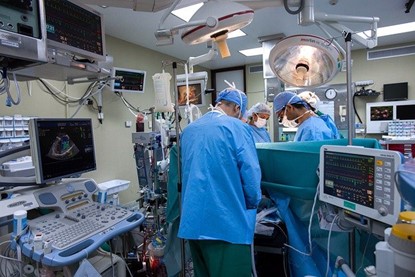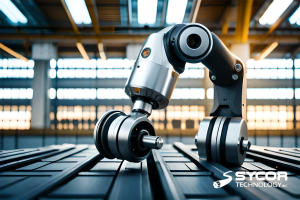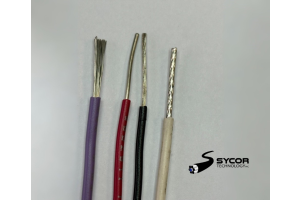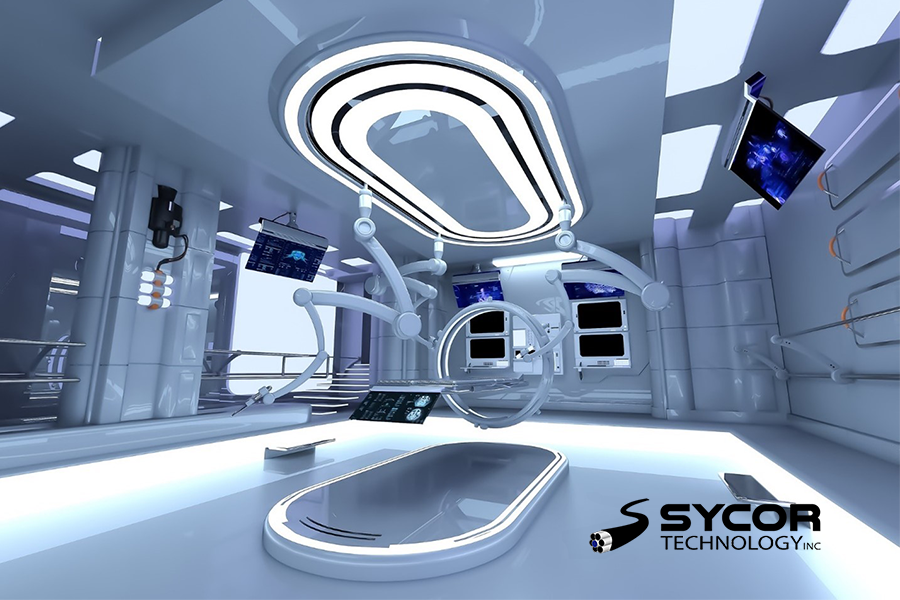
With everything from medical supplies to medical workers running on a low supply, robotics has continued to help meet these growing demands. In the past, there have been major concerns about machines replacing people in the workforce, but What has recently been showcased due to a worldwide pandemic, the more available help, the better.
Robotics has been an extremely popular category for Sycor Technology as our team has supplied a large number of applications with Hook-Up wire, High-Temperature wire, Communication cable, and various Tray cables for applications in the manufacturing, medical, chemical, and automotive industries. Automation specialists believe that although robotic automation sales were down in 2020, the sales will rebound as the most cost-effective and safe way to keep production moving forward is adopting a reliable, social distancing automation solution. Part of this is because of how the pandemic has brought to light the overall fragility of many organizations' overseas supply chains.
Medical Robots Before COVID-19
Even before the 2019 pandemic, robots were seen as a highly viable solution. These solutions came as a result of a limited number of specialized personnel, increased steadiness and precision, people living in remote locations needing immediate assistance, and enabling specialized personnel to operate on patients without coming into direct contact with them. Robotic technologies that you may have already seen or been aware of are devices that monitor patients' vital statistics and alert the nurses when their assistance is required, overall enhancing nurses' response time and awareness of patients. A second reliable assistive robot that's popular in the medical industry is "The da Vinci Surgical System, which gives surgeons more precise control for a range of procedures. Using magnified 3D high-definition vision and controls that strap to a surgeon's wrists and hands, the da Vinci System makes tiny, exact incisions that human hands might not otherwise be able to make" (Online-Engineering). The da Vinci Surgical System being more precise, is able to reduce patient recovery time. Robotics are also heavily installed in laboratories rather than the hospitals themselves, as they're able to handle chemicals safely and with increased accuracy. One last interesting medical robot that was developed by Rutgers University, helps find a patient's veins when taking blood (for donation or otherwise).
As of 2020, the medical industry has significantly increased its number of requirements for almost everything as COVID-19 has taken up a large number of the industry's medical personnel. These different types of robotics have also helped keep patients and medical personnel socially distanced from one another to limit the spread of viruses such as ebola, COVID-19, or even the seasonal flu.
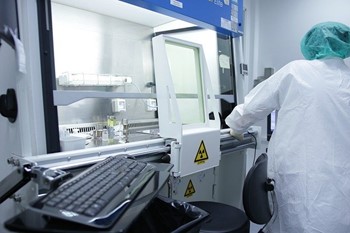
Medical Robots Replacing Human Workers
At the end of the day, the final question is, can an individual specializing in a specific area of the medical industry be replaced by various forms of robotics?
New technological innovations are always exciting, but the reality is that most hospitals do not have the required funding that it would take to make these applications investments a reality. Many of the larger robotics require large dedicated areas (a hall or floor track) for the components of a piece of technology to operate. This enables the devices to move between stations, and many of these devices will use pre-programmed laser-drawn maps to navigate the hospital. In general, it's not an easy task to replace a medical human worker, and it's even more difficult during a worldwide pandemic. Still, technology-assistive devices have made medical workers' responsibilities significantly more time-efficient and safe.
Medical Robotic Builds and Their Different Parts
One of the unique features and one of the greatest benefits of robotics, in general, is their customization ability. Does your application require two arms, one arm, more parts, wire, and cable that can handle constant flexing, the ability to withstand higher temperatures, or even be resistant to highly acidic chemicals? The different parts that go into these different applications are completely dependent on the application itself and its location. Below are just some of the different parts, designs, and applications that make medical automation a reality.
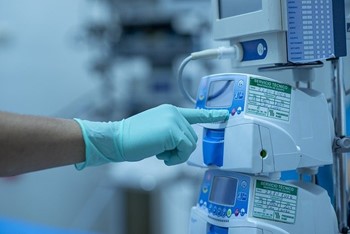
Popular Robotic Constructions
- Small single-arm tabletop robotics
- Large-scale single-arm manufacturing robotics
- Dual Arm Tabletop robotics
Popular Automation Medical Wire & Cable
- TEW UL1015, UL1028 (Tin or Bare)
- Type SDN Flexible Control Cable
- SOOW Power Cable
- Type W Single/Multi-Conductor
- Data communication Cable
- Heat Shrink Tubing and Sleeving
- Additional Cable Management Products
Sycor has the ability to track down any cabling product with any certification, whether you need CSA, UL, CE, Mil-Spec, HAR or even an ISO certification.
Popular Robotic Automation Applications
- Chemical handling
- Patient monitoring
- Surgery over long distances
- Room sterilizing
- Robotic carts can carry bed linens
- Medication dispensing
- Help administer physical therapy
- Drawing blood from patients
- Medical training
At its peak, the pandemic was a very trying time for everyone, and even though the technology is costly and most of the major innovations are years away from being fully implemented, the use of robots is changing the healthcare system as we know it. It's important to keep ourselves informed about what technological innovations are becoming a reality. Every step forward can save lives and significantly help medical personnel fulfill their duties. Sycor Technology has been supplying a wide variety of electrical cables in various automation applications around the world. Whether you're trying to improve manufacturing efficiency, promote social distancing, or even cut down on labour costs, the implementation of robotics and automation is a viable solution.
Sources
- 5 Medical Robots Making a Difference in Healthcare (Online Engineering)
- How are Robots Changing Healthcare? (Healthcare Administration Degree)
- From Surgeries To Keeping Company: The Place Of Robots In Healthcare (Medical Futurist)
For more information about us:
Call Toll Free - 1.800.268.9444 or Email Us - [email protected]

